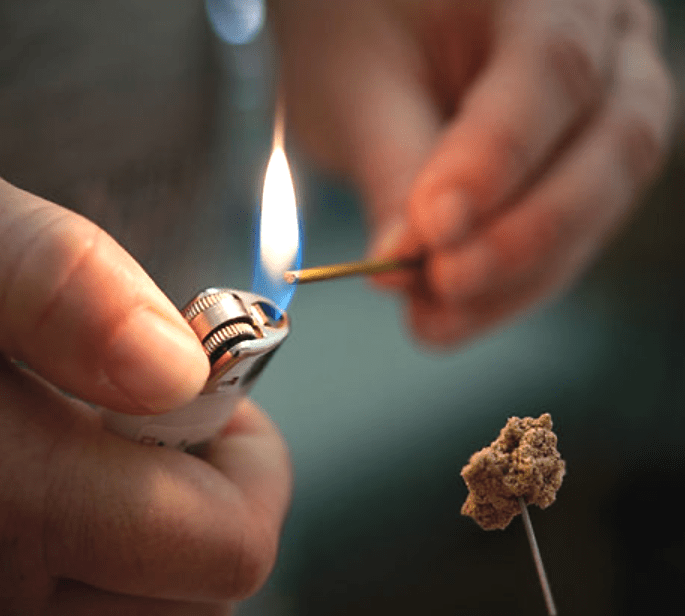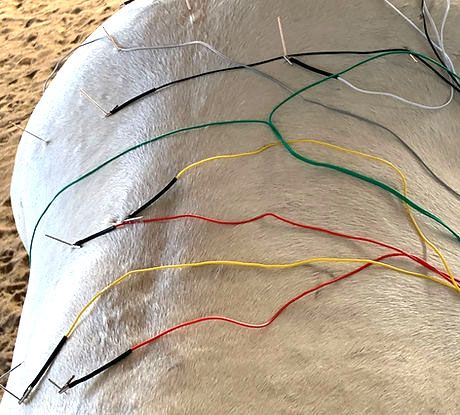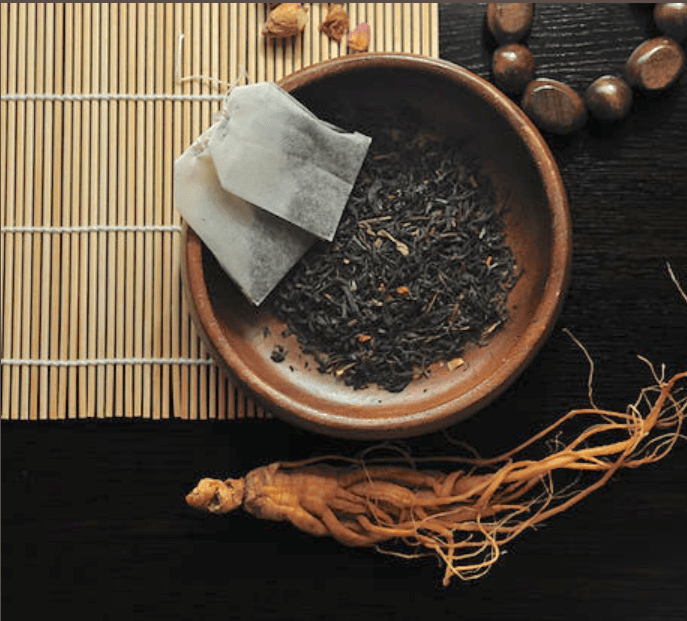TCVM & Acupuncture
Traditional Chinese Veterinary Medicine (TCVM), including Acupuncture, has been practiced for thousands of years. Although it has only become mainstream in the United States in the past few decades, Chinese practitioners have been treating their animals since at least 659 BC, when the first veterinary texts were written in China. In fact, agricultural species were very important to the ancient Chinese.
Acupoints on horses, cattle, and pigs have been identified and designated for almost as long as human acupoints. Traditional Chinese Medicine functions on the principle that the body should be balanced, with a free flow of Qi, (pronounced [CHē]) or body energy, to all the organs and tissues. Blockages of this energy causes pain, disease, and dysfunction. Lack of Qi energy causes fatigue and weakness, leading to poor performance from our equine partners.
In choosing TCVM for your horse, you may rest assured that each of Dr. Gnadt’s patients will receive a full TCVM examination and traditional eastern diagnosis before any acupuncture or herbal medications are prescribed.
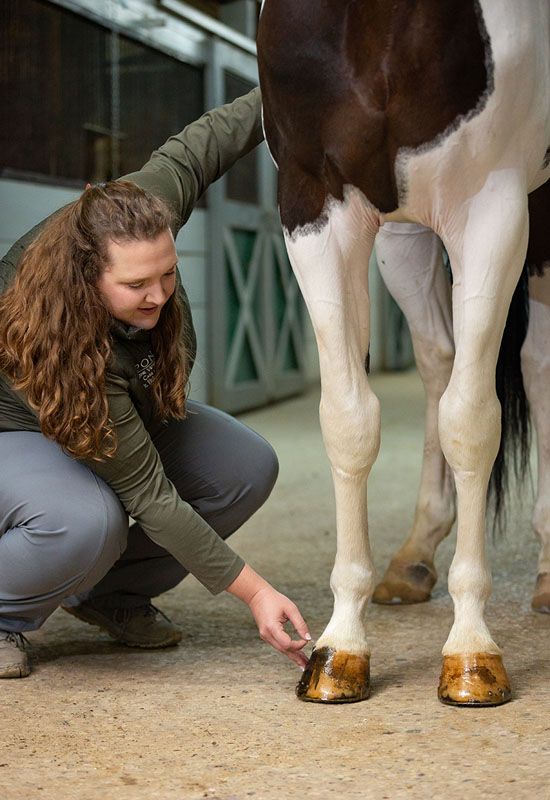
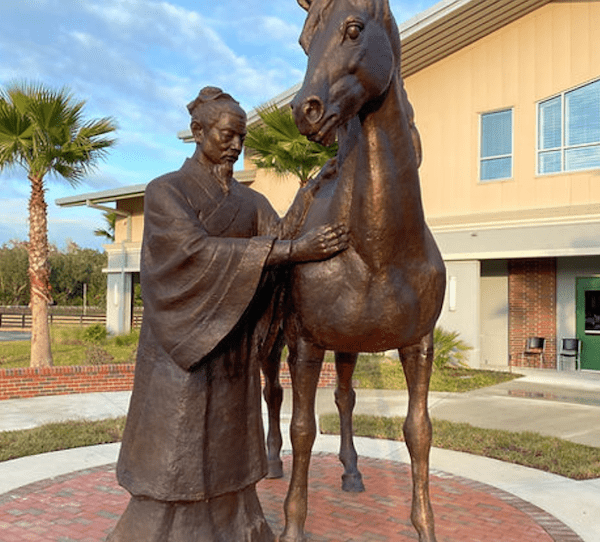
Traditional Chinese Veterinary Medicine
Dr. Gnadt trained at the Chi University in Reddick, Florida and practices Traditional Chinese Veterinary Medicine (TCVM), including Acupuncture and the prescription of Chinese herbal medications. This medical training is more than just learning where to place needles on a horse. Chi University teaches veterinarians how to make a Chinese pattern diagnosis so that the entire animal can be brought back into balance; it is not just about treating the current symptoms, as TCVM promotes overall, long-term health for your horse.
Acupuncture Treatment
If appropriate for, and tolerated by your horse, acupuncture can be a valuable therapeutic tool and performance enhancing regimen for your horse. In this time-honored traditional practice, very thin, sterile, flexible needles are inserted into specific acupuncture points to restore the flow of Qi and balance your horse. Placing the needles is usually painless and most horses tolerate it well. Electricity can be added for a stronger effect, as electrical stimulation of the needles is also painless and provides an even longer-lasting effect.
Aqua Acupuncture & Moxabustion
Aqua Acupuncture or Aquapuncture, uses a hypodermic needle to introduce fluid vitamin B into acupuncture points, and can also be performed to stimulate the acupuncture points longer. Some patients also benefit from the addition of heat to acupuncture points. Moxibustion acupuncture increases warming by burning moxa, or mugwort leaves, on or near the body’s meridians to heat up and stimulate either an acupuncture point, or a needle placed in an acupuncture point.
Chinese Herbal Medications
Based on your horse’s TCVM diagnosis, an herbal medication may be prescribed. These herbal medications are made available from one of two very reputable companies in America, Jing Tang Herbal in Reddick, Florida or Herb Smith from Hartland, Wisconsin. Chinese herbal medications are safe and effective. Today’s Chinese herbal medications are based on formulas which are thousands of years old and have been used in horses to great benefit. Administering these medications is similar to your horse getting a daily dose of acupuncture. Just like with any prescription medication, the patient must have a full exam and accurate Chinese diagnosis before a Chinese Herbal Medication can be prescribed.
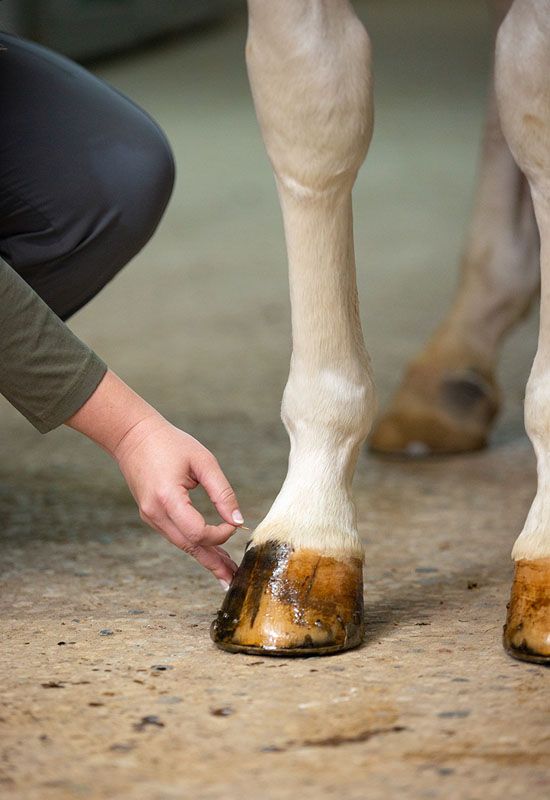

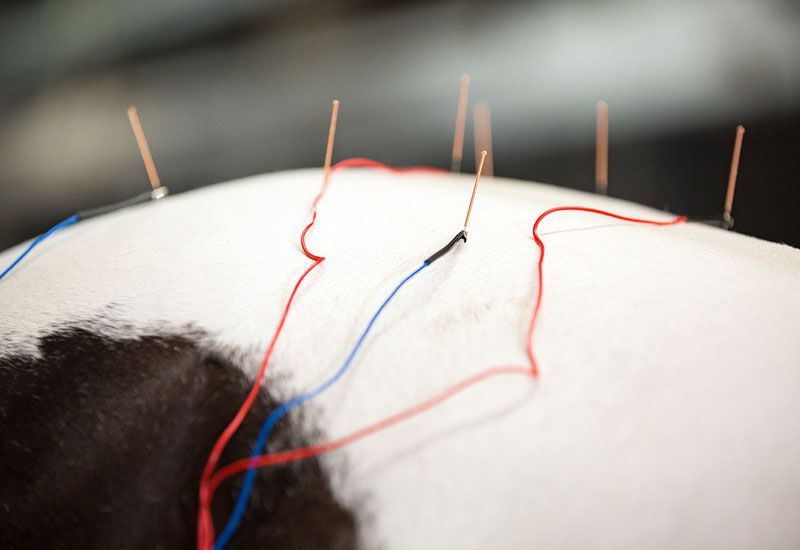
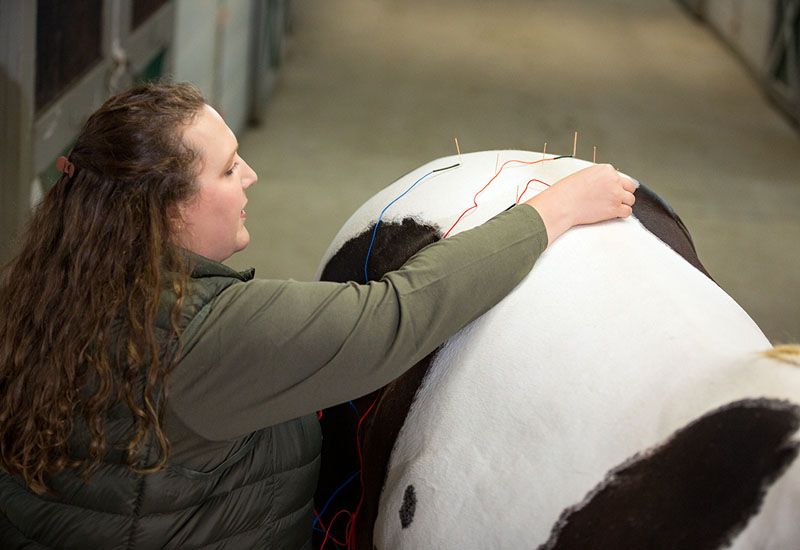
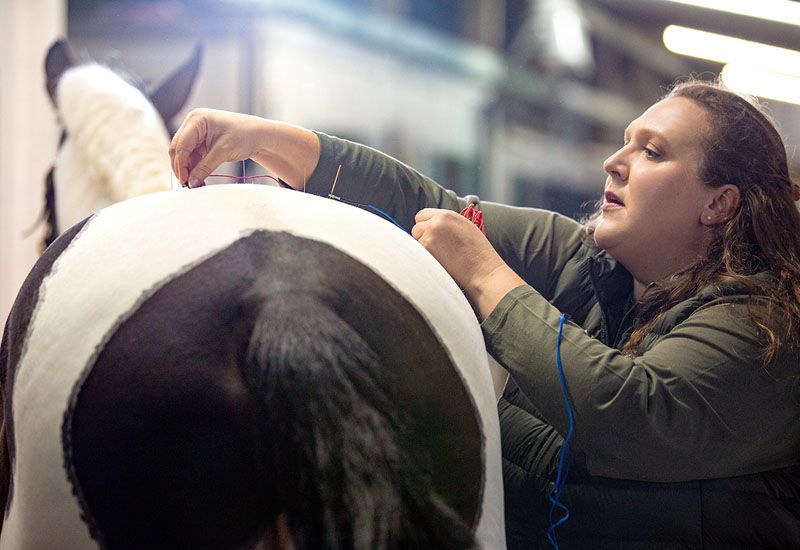
Where is the science here?
In addition to being based on long-standing traditional teachings about how Qi energy moves throughout the body along invisible meridians, there is also a lot of science to support the efficacy claims of acupuncture. There are many solid scientific studies that show acupuncture eases pain. The release of endorphins during acupuncture treatments is one well-documented mechanism of pain relief. Also, the locations of the acupoints frequently corresponds with higher-than-average concentrations of free nerve endings and blood vessels, which is why acupuncture has such a profound effect on the nervous system and local blood flow. Stimulating these areas causes the release of other cellular signals in the body, in addition to endorphins previously discussed. The resulting neural stimulation encourages the body to do a better job of healing itself.
What can Acupuncture Treat?
- Muscle and joint pain especially back pain
- Laminitis
- Navicular Syndrome
- Breathing conditions such as RAO (aka “heaves”)
- Eye diseases
- Colic
- Diarrhea or excess water being passed with manure
- Stomach Ulcers
- Behavioral problems
- Endocrine disorders such as PPID (aka “Cushing’s Disease”) and Metabolic Syndrome
- Infertility
- Skin diseases
- TCVM can also be prescribed to improve overall quality of life for animals with progressive diseases such as cancer or organ failure
Myth-Busting about Acupuncture
“A veterinarian who does acupuncture will tell me to stop using real medicine or surgery.”
Just because Dr Gnadt practices TCVM does not mean that conventional veterinary medicine and pharmaceuticals won’t be used! Today’s veterinary medicine is wonderful at diagnosing and treating diseases. TCVM excels at improving quality of life in animals who have diseases that have no cure in western medicine. TCVM also works as a wonderful complement to the current standard of care in veterinary medicine. Your animal deserves the best of both worlds!
“My horse might get an infection from the needles.”
All needles used are sterile and single-use. Your horse will never be treated with used needles. Infection from acupuncture needles is exceedingly rare.
“The needles are going to hurt my horse and they won’t like it.”
Acupuncture needle placement is usually painless. The needles are much finer than even the needles used to administer vaccinations or draw a Coggins test. Occasionally an animal’s Five Element Constitution (i.e., Earth, Fire, Metal, Wood, or Water) or personality, make them not want to have needles placed. In that case we will stop treating with needles immediately and use another method to stimulate the points, such as laser therapy, moxibustion, or acupressure. Patients who don’t like needles sometimes respond better to Chinese Herbal Medications. Most horses enjoy acupuncture and give some big yawns, licks and chews, and have a little snooze with the needles in place.
“If my horse doesn’t respond after one treatment, I know acupuncture doesn’t work for them.”
Although most patients show a great response after the first treatment, some animals take a little longer. The longer the condition has been going on, the more treatments it will take to improve the symptoms. For horses, there is a good scientific study that shows a large majority of horses will respond by the 3rd acupuncture treatment. So, if your horse doesn’t show improvement after the first treatment, don’t give up! Your horse might still have a very good response to acupuncture with continued treatments.
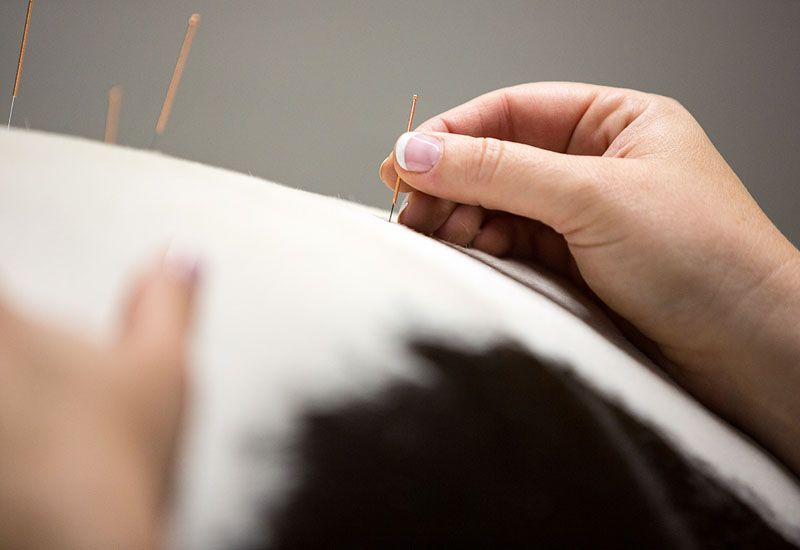
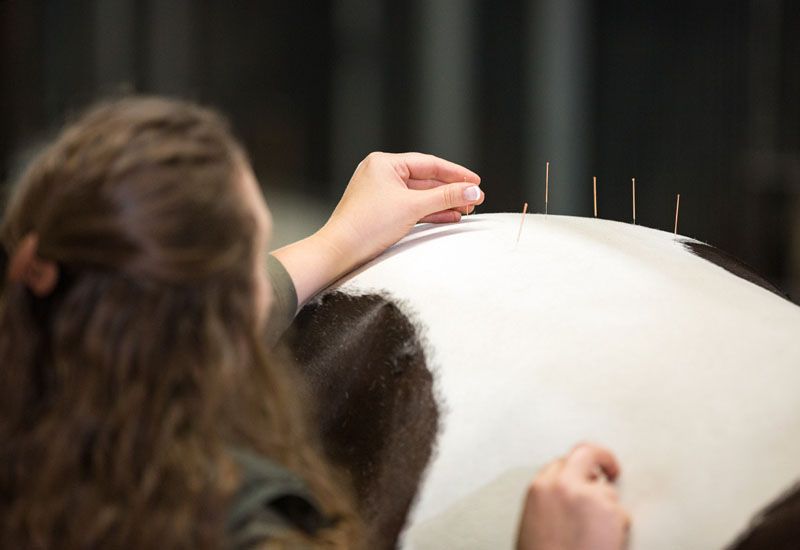
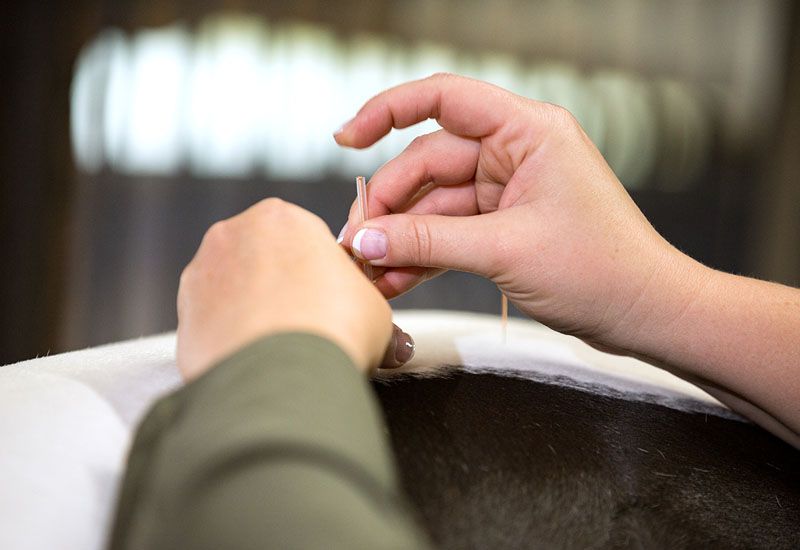
Book an Appointment
All services are by appointment only.
Serving the greater Milwaukee area in Wisconsin with seasonal availability in the Northwoods Wisconsin. Serving clients in Dodge, Jefferson, Washington, Waukesha, Milwaukee, Walworth, Ozaukee and Racine counties.
Available Monday – Friday from 9am to 5pm
Please avoid a $50 cancellation fee by rescheduling or cancelling your appointment 1 full business day in advance.
Please call for availability or fill out the contact form..
414-379-2464
